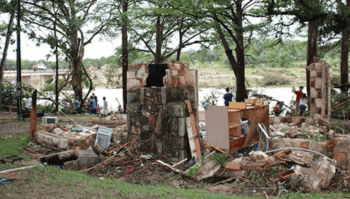EpiAssist: Fueling The Future Of Public Health

The critical shortage of trained public health professionals has been well documented in recent years and continues in most states, including Texas.
A service-learning program at the Texas A&M Health Science Center School of Public Health, EpiAssist, is helping to address these shortages by providing much needed services to health departments and agencies.
Created by Jennifer Horney, Ph.D., associate professor at the Texas A&M School of Public Health, EpiAssist partners graduate students with local, regional and state public health staff in need of assistance.
Horney’s past experience working on dozens of infectious disease outbreaks and responding to public health disasters including Hurricanes Charley, Isabel, Katrina, Wilma and Irene, brought to her attention the need for such a program as EpiAssist.
“Field experiences like EpiAssist emphasize reciprocity, ensuring a balance between meeting the needs of both the community and our students,” said Horney. “Students are eager for real-life experience outside the classroom and health departments and agencies often are in need of extra assistance, especially when emergencies or disease outbreaks occur.”
Since January, Texas A&M School of Public Health students have completed more than 900 hours of volunteer service on 16 projects.
Projects have included working with the Department of State Health Services (DSHS) in Austin on issues of concern to many Texans, including analyzing swift water rescues associated with spring floods and food safety. Other students assisted local officials in Harris County in assessing resident preparedness for hurricane season. Locally, students worked with the Brazos County Health Department to investigate an outbreak of Shigella, an infectious disease that causes about 500,000 illnesses a year in the U.S. and 3,000 in Texas.
Additionally, students have been able to provide needed specialized skills for certain projects, including speaking other languages and the ability to work with data collection software such as Epi Info™.
“EpiAssist provided our team with extremely quick support by turning our paper-based survey into a usable electronic form for tablet data collection, ensuring we received a fully functional database as we were preparing for a community survey,” said Kahler Stone, epidemiologist for the Waco-McLennan County Health District.
Continue reading on Vital Record.
This article by Rae Lynn Mitchell originally appeared in Vital Record.





